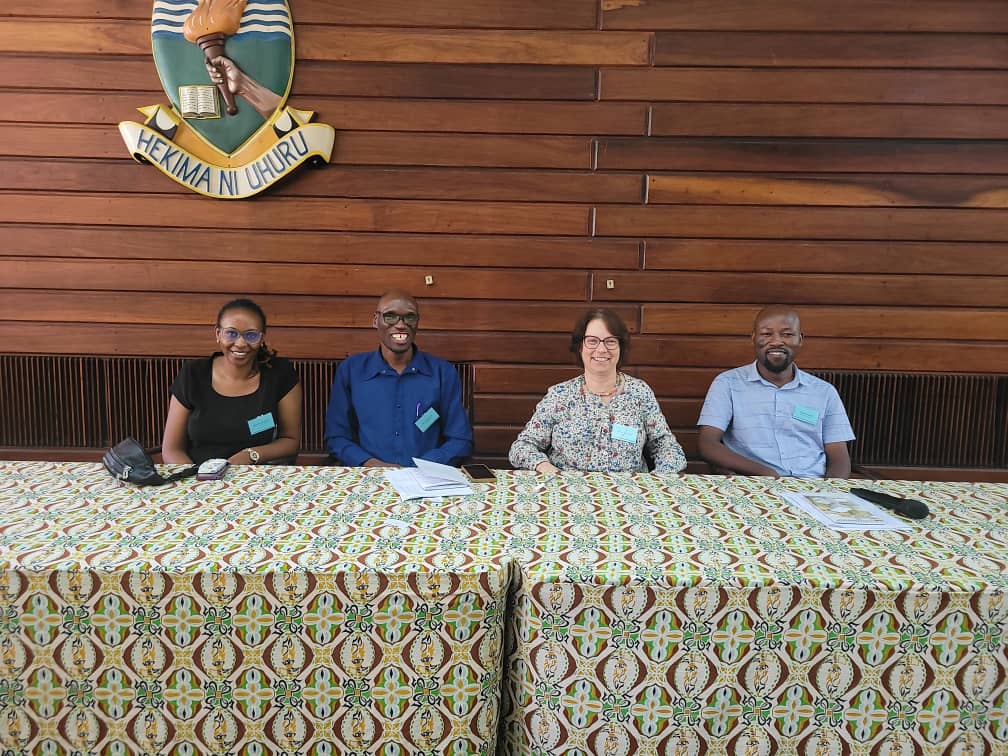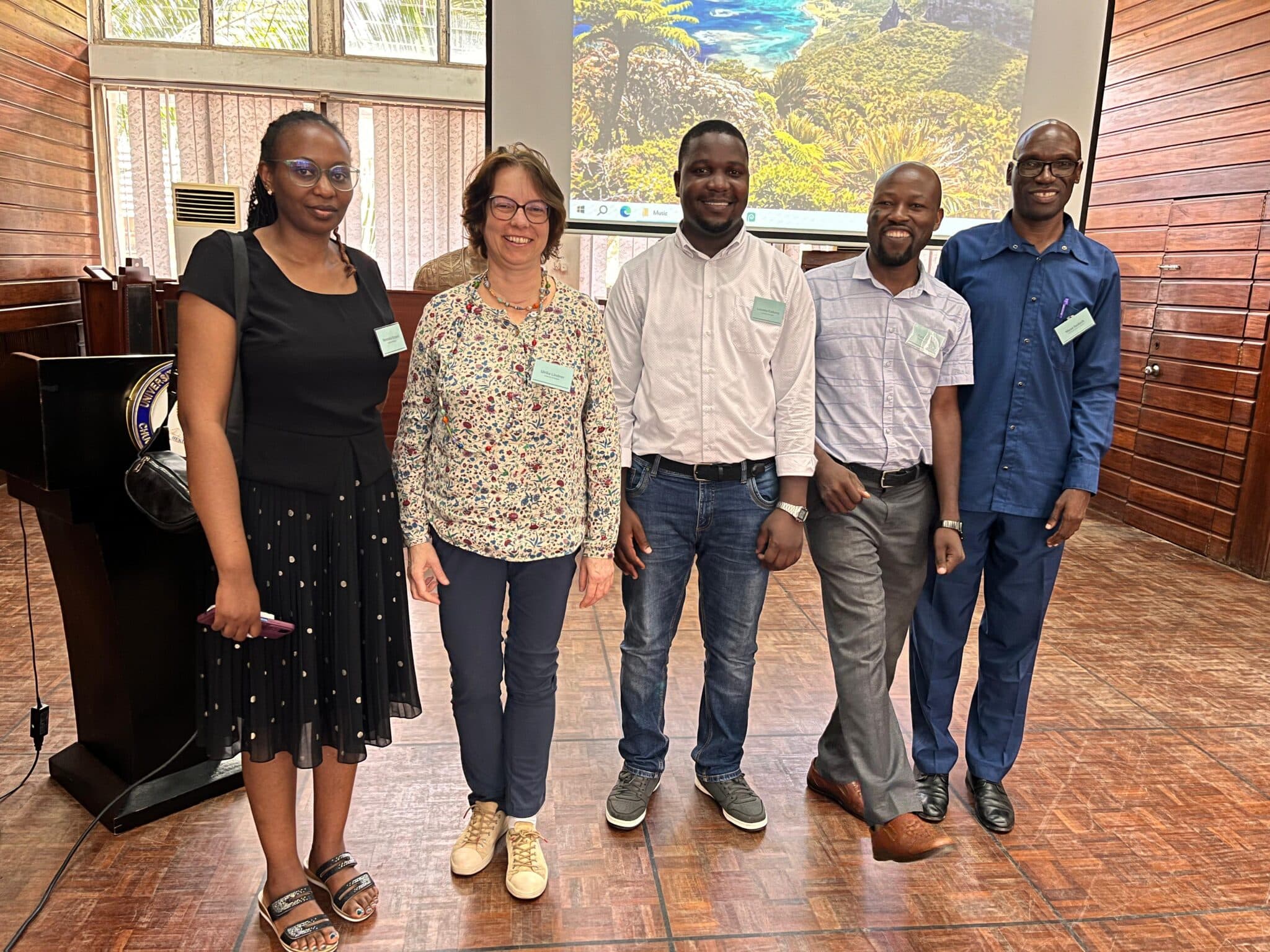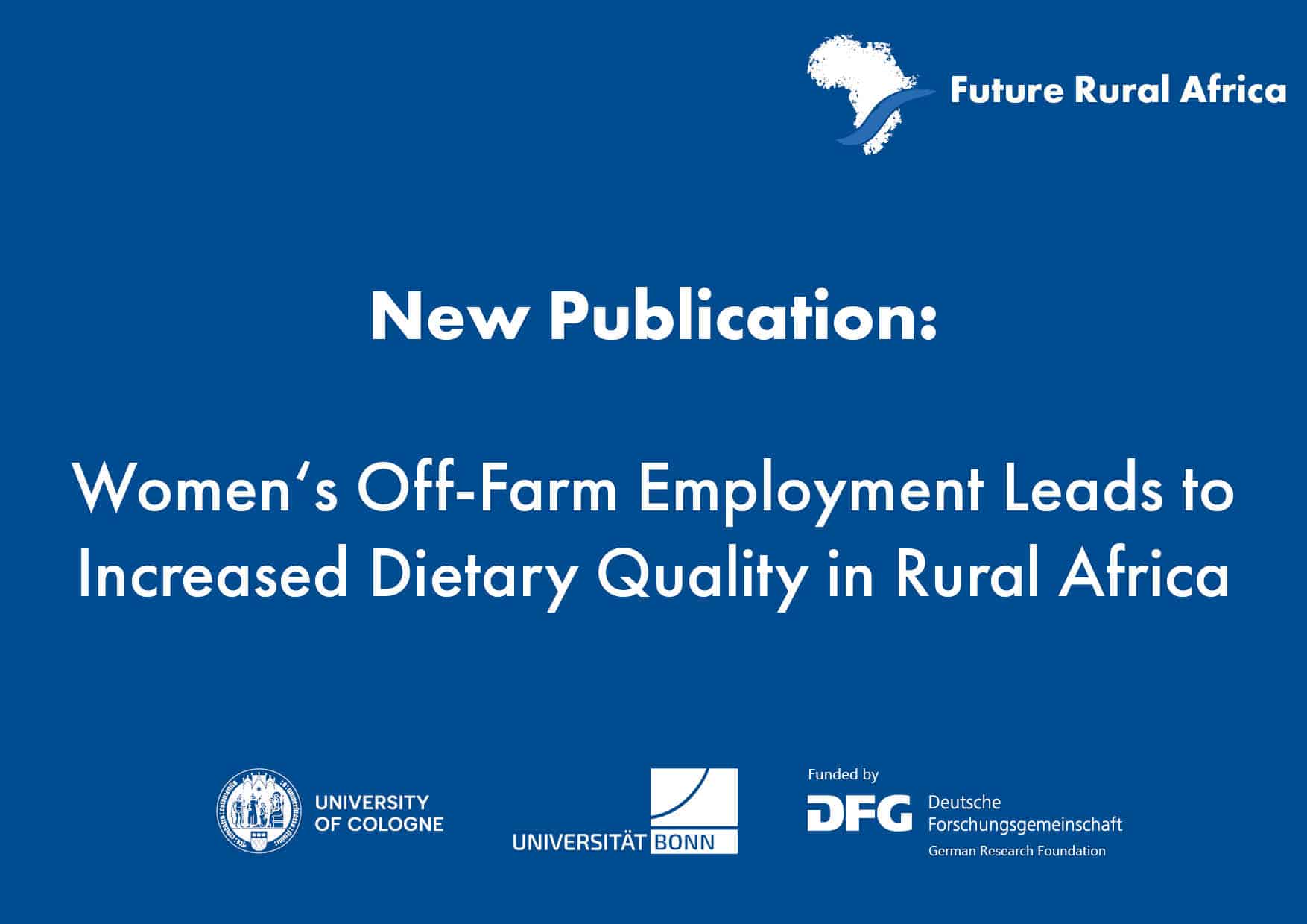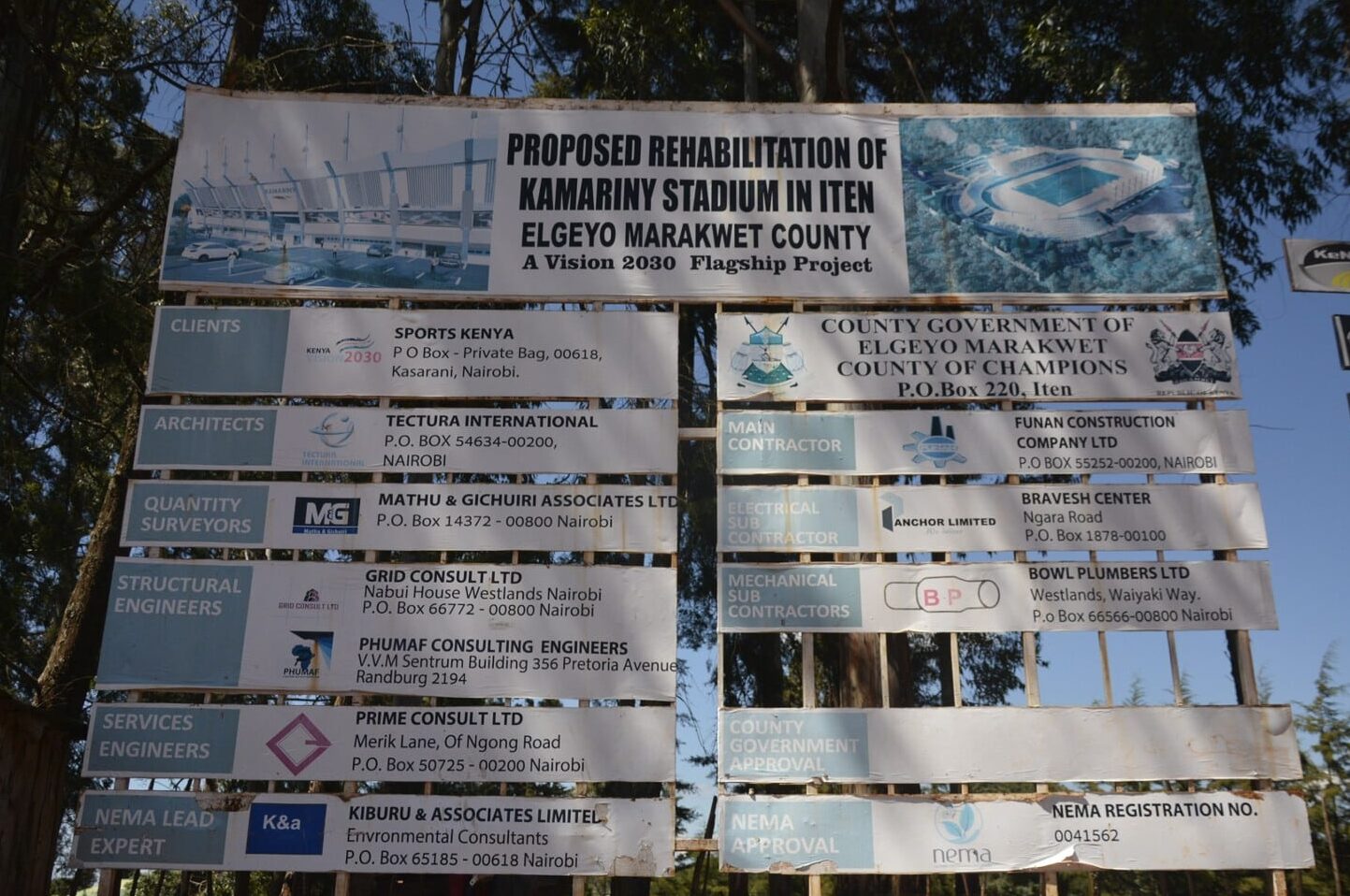Future Rural Africa Project C07 Health Futures examines public-health policy planning under changing concepts of social welfare and political legitimation. The project’s members recently contributed to the maiden issue of the Zamani Journal of African Historical Studies. The volume is co-edited by Ulrike Lindner and Frank Edward and features contributions by several Future Rural Africa researchers from various sub-projects. The volume seeks to analyse how different approaches to the future, and also surprises and unintended side-effects, have informed the politics and practices of planning in Tanzania and its various regions. Below, researchers Frank Edward and Veronica Kimani reflect on their contributions to the special issue, the outlook of their project and the publication process.
Both of you recently contributed to the first volume of the Zamani journal, a special issue titled “Failed Futures”. The volume features inputs from five Future Rural Africa Researchers. How did the special issue come about and what did your contributions to it focus on?
Veronica Kimani: Focusing on the history of health planning in Tanzania, Project C07 Health Futures recognized the need to address the history of the political, economic, and social dimensions of the 20th century. A country’s health system does not function in isolation but is part of a broader ecosystem that shapes national development. From the existing literature, it is evident that while Tanzania has worked towards considerable progress, the country is still working through many of the development agendas established during the colonial period and after independence. Therefore, we used the term “failed futures” not to denote absolute failure or total collapse but as a relative category. This framing allows for a comparison of achievements against the originally declared goals, illustrating that development planning can involve delays, collapses, surprises, unintended consequences, or even detours.
Frank Edward: The idea to publish our research results in the maiden issue of Zamani came about when we organised a workshop, titled “Failed Futures” in Dar es Salaam, Tanzania in March 2024. It was then, when the participants of the workshop, alongside Prof. Dr. Ulrike Lindner and myself, contemplated publishing the presented papers as a special issue for the first time. At the end of the workshop, a unanimous decision was reached to publish the papers with Zamani. Ulrike Lindner volunteered to be the guest editor for the special issue. Presenters were given two months to refine and transform the papers into publishable articles. By June 2024, contributors submitted their papers which were now sent to external reviewers. By late October 2024, the contributors had completed revisions of their papers after working on peer reviewer comments and the editors of Zamani journal decided to publish it in Volume 1 number 1.
I co-edited the special issue together with Ulrike Lindner. Aside from that, we also contributed an article titled “Health Infrastructure Planning in Tanzania, 1961-1980s: The problems of future-making “. In it, we examine Tanzania’s healthcare policies and infrastructure development between 1961 and 1978, focusing on how the state envisioned health service provision. We explore the government’s investments in medical facilities, health education, and workforce training, particularly its emphasis on rural primary healthcare. We argue that while these efforts led to improvements in health outcomes, they also contributed to long-term structural issues in the health sector. Our study challenges the dominant narrative that attributes the decline of Tanzania’s healthcare system solely to neoliberal policies, showing instead that earlier socialist-era policies played a significant role in shaping later crises. By comparing socialist and early neoliberal health infrastructures, we demonstrate how the focus on primary healthcare in rural areas ultimately restricted access to high-quality medical services.
Veronica Kimani: In my contribution to the special issue, I examine the history of health planning in Tanzania. I focused on the government’s ambitious efforts to improve healthcare, particularly midwifery services, following independence. During my fieldwork in Kilombero, I discovered that a segment of the population continued to rely on traditional medicine and midwifery while still seeking medical services at the hospitals. This observation led me to explore the historical relationship between traditional medicine and government-provided biomedicine from a historical perspective. Ultimately, this research culminated in the paper, “Nurturing Traditional Midwifery and Medicine: The Entangled Path of Health Integration in Post-Independence Kilombero, Tanzania.”
What are the key themes that are explored in this issue, and how do they relate to the broader mission of the Collaborative Research Centre Future Rural Africa?
Frank Edward: Three key themes were addressed in the special issue. First was health infrastructure planning in Tanzania from colonial to post-colonial times. The authors extended the infrastructure research into health thus distinguishing themselves from previous health research. Secondly, we addressed the planning and policies of health services after independence. Finally, the issue examined the ideas of rural development in Tanzania’s health system from colonial to post-colonial times. These themes show how rural Africa is a key player in the development agenda for Tanzania and the international level, and cannot be ignored.
Veronica Kimani: With regards to the broader mission of the Future Rural Africa Project, I would say the central point is ‘future-making’. The contributors analysed how different approaches to the future were handled in the past and how such processes informed the politics and practices of planning in Tanzania up to date. Secondly, the special issue focussed on ‘infrastructuring’ in the health sector in Tanzania from early postcolonial times, when the majority of the population was living in a rural setting. This concept is at the core of the projects’ second funding phase, that we are currently wrapping up. The special issue also touches on the impacts of past ideas in the areas of health and infrastructure in a local context of Tanzania and how they impacted the social-ecological systems.
This special issue is the culmination of a workshop conducted last year. Can you tell us more about how the workshop shaped the publication?
Veronica Kimani: The idea for the workshop emerged in mid-2023. On March 22, 2024, all contributors convened at the University of Dar es Salaam (UDSM) for the event. With the support of the UDSM History Department and the organizers, the workshop was well attended. By bringing together researchers, the workshop provided an opportunity for contributors to receive valuable feedback on their papers from participants and guests. Additionally, the workshop facilitated discussions among contributors, allowing them to agree on key aspects such as important deadlines, the review process, and the distribution of tasks. These collaborative efforts ultimately laid the foundation for the publication of the special issue in December 2024.

As a researcher, what was the most exciting aspect of contributing to this special issue?
Frank Edward: The most exciting moment was to see the volume being published. Of course, publishing such a large volume with so many contributors is not an easy task. I am very pleased with the outcome and how the contributors supported us editors during the process. The other exciting aspect is knowing that our publication will be published in an open access system which means that it can be accessed for free all over the world, ensuring that as many people as possible can benefit from our work.
Are there any upcoming projects, publications, or events connected to the themes discussed in the special issue?
Veronica Kimani: After the publication of the special issue, the members of Project C07 Health Futures have planned to focus on other tasks in early 2025. However, we plan to conduct a dissemination workshop at Ifakara later this year, where some of the themes covered in the special issue may be presented. Dr. Edward will also present a research paper on Kilombero Valley and the railway development in the interwar period. This paper is connected to one of the papers in the special issue and will be presented to the Future Rural Africa members in June 2, 2025, at Bonn University, Germany.
References
Edward, F., Lindner, U. 2024. Health Infrastructure Planning in Tanzania, 1961-1980s: The Problems of Future-making. Zamani: A Journal of African Historical Studies. Vol 1: no. 1 (2024), DOI
Kimani, V. 2024. Nurturing Traditional Midwifery and Medicine: The Entangled Path of Health Integration in Post-Independence Kilombero, Tanzania. Zamani: A Journal of African Historical Studies. Vol 1: no. 1 (2024), DOI






